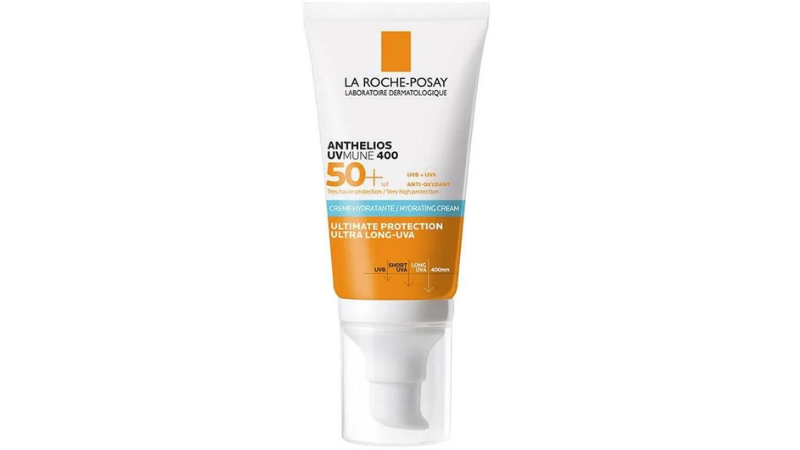Zinc oxide or zinc sulfate? Zinc is a versatile element that finds its way into various aspects of our daily lives, from breakfast cereals to household paint and, notably, sunscreen.
But is all zinc created equal? In the realm of sun protection, understanding the differences between these two forms of zinc becomes crucial for making informed choices about the products we use.
Zinc Sulfate vs. Zinc Oxide: Unveiling the Distinctions
Zinc sulfate (ZnSO4) is commonly featured in nutritional supplements and often found in fortified cereals or lozenges.
Recognized as an essential nutrient for maintaining healthy tissues, including skin, eyes, lips, nails, and hair, zinc’s presence in supplements requires caution. It can interfere with nutrient absorption and the effectiveness of antibiotics, making it imperative to seek medical supervision when incorporating zinc supplements into one’s routine.
On the other hand, zinc oxide (ZnO) makes appearances not only in occasional foods and medicines but is prevalent in makeup, lotions (such as calamine), antiseptic ointments, anti-dandruff shampoos, sunscreens, and various skin treatments. Dating back to an 11th-century medical document that listed zinc oxide as a treatment for skin ailments, including skin cancer, its usage has evolved. While it’s no longer employed for cancer treatment, ZnO stands out as a remarkably effective sunscreen, playing a pivotal role in reducing exposure to cancer-causing UV rays.
Zinc Oxide as a Sun Filter: A Shield Against Harmful Rays
When incorporated into sunscreens, zinc oxide emerges as a superior sun filter with several notable advantages. One key attribute is its photostability, meaning it remains intact even under prolonged exposure to UV light. This sets it apart, providing broad-spectrum protection against both UVA (320–400 nm) and UVB (280–320 nm) rays.
Unlike certain sunscreen ingredients, ZnO doesn’t penetrate the skin, making it non-irritating and non-allergenic. The FDA has categorized zinc oxide as GRAS – “generally regarded as safe.” This designation underscores its safety profile, instilling confidence in consumers seeking reliable sun protection without compromising on skin health.
Which is Better: Zinc Sulfate or Zinc Oxide?
The debate surrounding the superiority both of these ingredients often arises, prompting individuals to question which form of zinc is better absorbed. To unravel this query, it’s crucial to delve into the unique properties and applications of each compound.
Why is Zinc Sulfate Better?
Zinc sulfate gains recognition as a nutritional supplement, contributing to the maintenance of various bodily tissues. However, its superiority over the oxide variety hinges on specific factors, including absorption efficiency and potential interactions with other substances. Seeking professional guidance before integrating zinc sulfate supplements into one’s regimen ensures optimal benefits without compromising overall health.
Is Sunscreen with Zinc Oxide Better?
When it comes to sunscreens, the question of whether zinc oxide outshines other sun-filtering ingredients becomes quite important. The photostability and broad-spectrum protection offered by zinc oxide position it as a standout choice for individuals prioritizing effective sun protection without compromising on skin safety.
Why do Dermatologists Recommend Zinc Sunscreen?
Dermatologists often advocate for zinc sunscreen due to its proven efficacy and safety profile. The non-irritating and non-allergenic nature of zinc oxide, coupled with its ability to provide robust protection against harmful UV rays, makes it a preferred choice for skincare professionals.
Is ZnO a Safe Sunscreen Ingredient?
Addressing concerns about the safety of sunscreen ingredients is crucial for informed decision-making. In the case of zinc oxide, its GRAS designation by the FDA reinforces its safety, assuring consumers that they can trust this compound as a reliable and secure component of their sun protection routine.
Is ZnO Good for the Skin?
Beyond its sun-filtering capabilities, zinc oxide boasts additional benefits for the skin. Its non-comedogenic properties make it suitable for various skin types, and its soothing qualities contribute to a gentle and nurturing skincare experience. Incorporating it into skincare routines can offer a dual advantage of sun protection and skin enhancement.
In conclusion, understanding the distinctions between zinc sulfate and zinc oxide allows consumers to make informed choices when selecting sun protection products. As zinc continues to play a pivotal role in our daily lives, its diverse applications underscore its significance in maintaining not just our health but also the health of our skin.
While we don’t stock zinc containing sunscreens at our store, formulations that contain this ingredient can be a fantastic option for babies under six months (who it’s not recommended to apply chemical sunscreens on), or individuals with sensitive skin who may not be able to tolerate chemical sunscreens like the ones found in our top selling line of Anthelios or Ombrelle.




